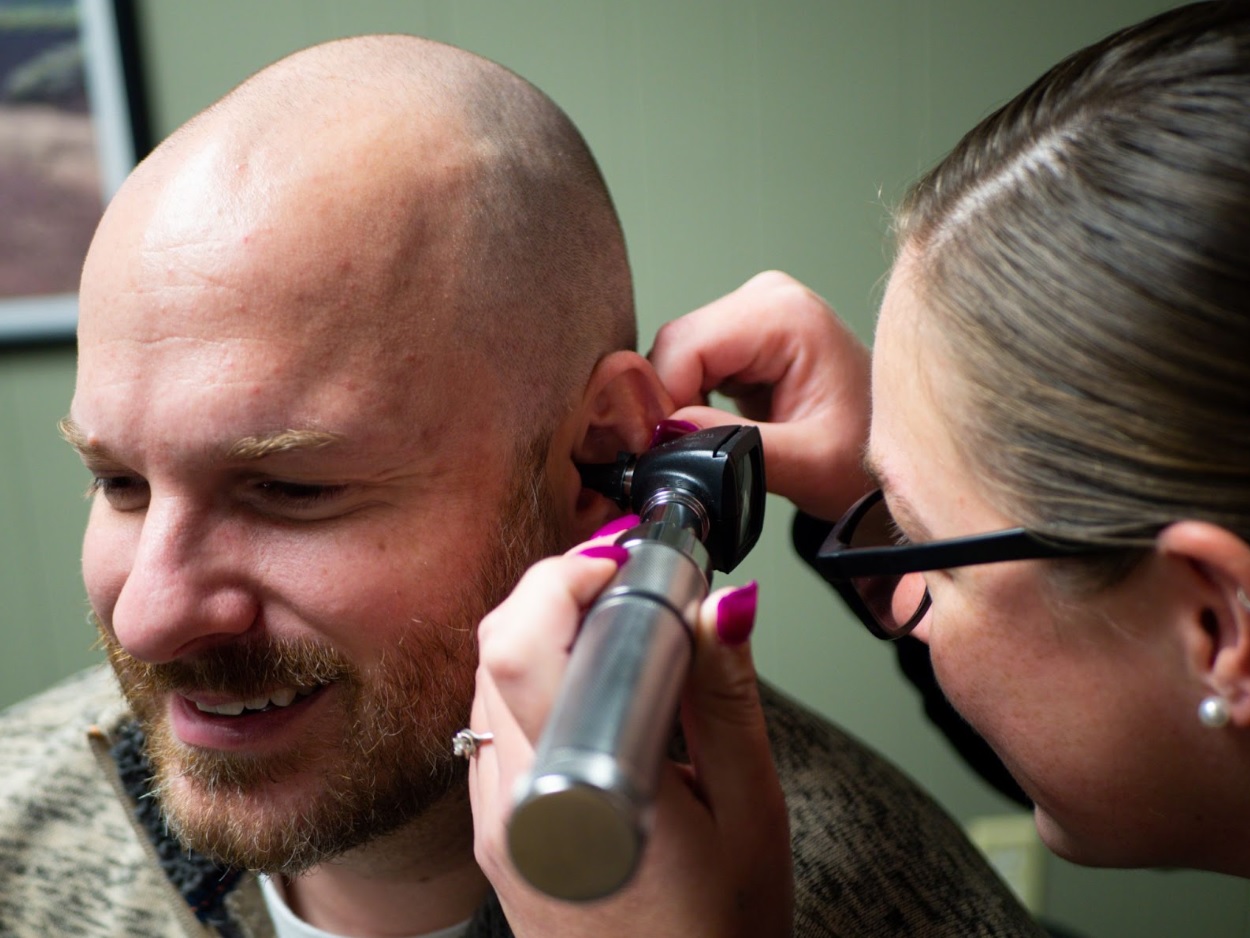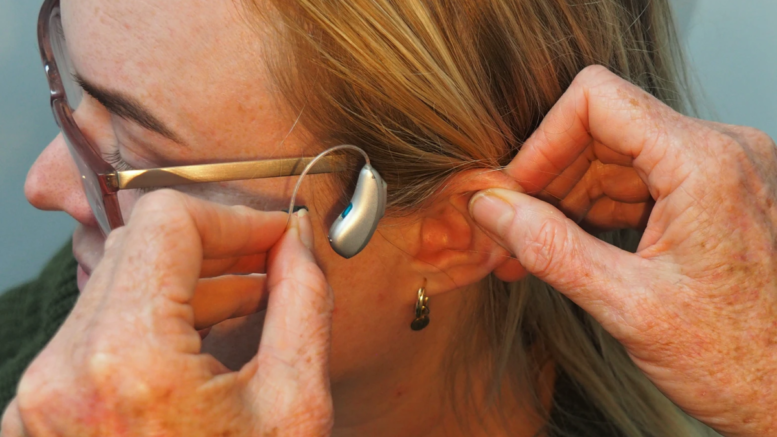Hearing impairment is a widespread problem that impacts millions of people all over the world. Hearing aids, particularly those that may be purchased over-the-counter (often known as “OTC”), are one of the many solutions that have been readily available as a result of technological advancements in recent decades. Over-the-counter (OTC) hearing aids are not only affordable and easily accessible, but they also do not require a hearing test or a prescription. Although it’s possible that the thought of buying a hearing aid without first contacting a hearing specialist is attractive to you, you might be wondering if doing so is actually a wise idea. In this article, we will discuss the benefits and drawbacks of over-the-counter hearing aids in an effort to assist you in making an educated choice.
Pros of OTC Hearing Aids
- Convenience: Convenience is one of the primary advantages offered by over-the-counter (OTC) hearing aids. You don’t need a doctor’s visit or a referral in order to purchase them, and you can do so either in a physical store or online. People who reside in more remote places or who struggle with mobility will find this choice to be the most suitable.
- Affordability: Hearing aids available over-the-counter (OTC) are much more affordable than hearing aids that are created to order and prescribed by a hearing specialist. People who do not have insurance that covers hearing aids or who do not have enough money saved up to buy an expensive hearing aid will find this option to be more affordable and hence more accessible.
- Accessibility: Hearing aids that are available over-the-counter (OTC) can be obtained without the need for a doctor’s prescription, making them more available to the general public. This choice is especially helpful for people who have only a moderate hearing loss, as the device does not need to be fitted or programmed in a complicated manner for them.
Cons of OTC Hearing Aids
- Limited options: The alternatives for over-the-counter (OTC) hearing aids are more limited than those for custom-made equipment recommended by a hearing specialist. There is no one size fits all solution when it comes to hearing aids. Since over-the-counter (OTC) hearing aids aren’t customized to match each person’s unique hearing needs, they might not work well for everyone.
- No medical supervision: A hearing test or prescription from a hearing specialist are not necessary for over-the-counter hearing aids. This suggests that you might be suffering from undiscovered underlying medical issues that have an impact on your hearing.
- No follow-up: You buy an over-the-counter (OTC) hearing aid of your own volition. There isn’t a committed expert available to assist you with adjustments or troubleshooting issues that may arise. This is a dangerous alternative since you can wear a device that is poorly fitted or programmed and end up doing more damage to your hearing.
In conclusion, if you only require basic amplification and have a mild hearing loss, over-the-counter (OTC) hearing aids may be a reasonable choice. More complicated cases, on the other hand, requiring programming, special fitting, and medical monitoring are not appropriate for them. Do your homework, read reviews, and speak with an audiologist before purchasing an over-the-counter hearing aid. To guarantee the greatest results for your hearing health, always get appropriate medical advice before investing in any kind of hearing aid.
What are the Best OTC Hearing Aids?

Hearing loss affects around one-fifth of the population of the world in some degree. Because members of the baby boomer generation are living longer, it is anticipated that this number will continue to increase. A lot of people try to avoid getting hearing aids because of the expense, the stigma, or their vanity. On the other hand, the market for hearing aids has been shifting recently, with more over-the-counter (OTC) items appearing on the market. These OTC goods have both reduced pricing and increased functionality. This article on my blog will provide information on the most effective over-the-counter (OTC) hearing aids currently on the market so that you can make an educated purchase.
Amplifiers make up the first subcategory of over-the-counter (OTC) hearing aids. These are often the least expensive and easiest to get of all the available devices. They achieve their effect by amplifying the volume of sounds without taking into account the specific acoustic features of the individual using them. The Otofonix Elite personal sound amplifier is one popular choice in this category. As a result of its fully programmable volume control and noise reduction functionality, it is ideally suited for users with hearing loss that is mild to moderate in severity. The Banglijian Hearing Amplifier is an additional option to consider; it has a long battery life and a design that is easy to use.
Personal sound amplification products (PSAPs) are the second category of over-the-counter (OTC) hearing aids. These gadgets are not considered hearing aids despite having technology that is comparable to that of hearing aids. Because of this, their price point is more reasonable, and you do not need a prescription from an audiologist to get them. The Lucid Audio Enrich Pro PSAP offers amplification that can be adjusted to meet the requirements of particular types of hearing loss, such as an increase in the volume of high-frequency sounds or a reduction in background noise. The IQ Sound IQBuds BOOST is yet another excellent choice for a PSAP. These headphones have cutting-edge noise-cancellation technology and a wide range of personalization possibilities.
The next category consists of hearing aids that are sold directly to customers and have been granted FDA approval. This indicates that the devices satisfy certain requirements regarding their efficiency and safety. The Eargo Neo HiFi is one of the models in this category that is very well-liked. Eargo has a design that is unobtrusive and comfy, as well as a battery that can be recharged and a method that allows for personalized fitting. Their products have been praised for their ability to reduce background noise and for the increased clarity of sound that they provide to end users.
Last but not least is the hybrid product known as the ReSound One. This device combines the technology of conventional hearing aids with the ease of purchasing them directly from the manufacturer. It gives customers the ability to remotely alter their settings and fine-tune them for various environments. Users of this sort of gadget have access to the best possible sound quality, despite the fact that it is the most expensive option on the list.
The over-the-counter (OTC) hearing aid market can be difficult to navigate, but there is a wide variety of products available to meet a variety of requirements and price points. There are options available for you, regardless of whether you want an amplifier, PSAPs, or a device that has been approved by the FDA. We hope that by reading this post, you now have a better understanding of the top over-the-counter (OTC) hearing aids on the market. Always keep your hearing health in the forefront of your mind and don’t forget to get your hearing checked out by an audiologist if you’re having any problems with it.
